Team of Mi’raj News Agency (MINA) had opportunity to conduct an exclusive interview with the Ambassador of the Republic of Azerbaijan to the Republic of Indonesia H. E Jalal Mirzayev at the Embassy of the Republic of Azerbaijan, Jakarta on Tuesday, July 21.
MINA team led by Editor in Chief Ismet Rauf, Senior Editor Widi Kusnadi, Head of Coverage Rana Setiawan, Chief Editor of Arabiv Rifa Berliana Arifin, Chief Editor of English Sajadi, International desk journalist Siti Aisyah, and photographer Abdullah.
While Ambassador Mirzayev was accompanied by the Second Secretary of the Embassy, Mr. Emil Ahmadov.
During the meeting, Ambassador Mirzayev explained some issues.
Also Read: Strengthening Bridges of Friendship and Cooperation between Indonesia and African Countries
In the excerpt of this second part of the interview, he expalined about the foreign policy of the Republic of Azerbaijan in its geo-political and strategic geo review.
MINA: How is the Azerbaijan’s foreign policy of geopolitical and geo-strategic?
Ambassador Mirzayev: Today Azerbaijan is a country that is conducting a foreign policy based on its national interests in the real sense of the word. Naturally, our confidence and independence in the foreign policy field come from our successful domestic policy.
Due to domestic development and confidence, our foreign policy is being conducted on a balanced and multipolar fundamental basis.
Our head of state has repeatedly noted that Azerbaijan has an independent and transparent foreign policy strategy.
At the same time, in its foreign policy Azerbaijan takes as a basis the norms and principles of international law and the UN Charter and is guided by the principles of equal rights, non-interference in internal affairs, mutually beneficial cooperation and respect for the territorial integrity and sovereignty of states.
The following priorities are on the agenda of the successful foreign policy being pursued by our Head of state:
First, Maintaining and strengthening the independence and sovereignty of Azerbaijan
Also Read: Ambassador: Climate Change is the Main Cause of Floods in Pakistan
The people of Azerbaijan made numerous sacrifices to regain their current independence, and our people longed for this independent for years. For this reason, maintaining and strengthening Azerbaijan’sindependence and handing it down to the generations to come is one of our main duties.
Based on the principles of sovereignty and equality, we respect the sovereignty of other states, do not interfere in their internal affairs and demand the same attitude to ourselves.
Second, Eliminating the consequences of Armenia’saggression against Azerbaijan and ensuring the territorial integrity and sovereignty of Azerbaijan within its internationally-recognized borders and a lasting peace and security in the region
ln 1993, the UN Security Council adopted Resolutions822,853,874 and 884 and condemned the use of force against Azerbaijan and the occupation of its lands.
ln these resolutions, the Security Council expressed its respect for the territorial integrity and sovereignty of Azerbaijan once again, confirmed that the Nagorno-Karabakh region is an integral part of Azerbaijan and demanded the immediate, full and unconditional withdrawal of occupying forces from all occupied territories.
Such serious points are also included in the numerous statements adopted by the chairman of the Security Council in 1992-95.
lt is to be regretted that the resolute demands of the Security Council for the withdrawal of the occupying forces from all Azerbaijani territories have still not been implemented and the mediatory efforts that have been continuing within the framework of the OSCE for more than 20 years have still not yielded a result.
lnstead of engaging in goodwill negotiations, Armenia openly disrupts all attempts aimed at a peaceful settlement of the conflict.
Also Read: AMBASSADOR TALKS/Russian Ambassador: Attack on Ukraine Tough Choice to Make
Totally ignoring the demands of the UN Security Council and flagrantly violating international law, Armenia refuses to withdraw its troops frorn Azerbaijani territories, prevents the hundreds of thousands of Azerbaijanis, who have been displaced by force, from returning to their homes and is trying to strengthen the existing status quo by changing the physical, demographic and cultural nature of the occupied territories.
These alarming facts were once again confirmed by the OSCE fact-finding mission.
Armenia’spolicy of occupation can never result in success. The Nagorno-Karabakh region has been and is an integral part of Azerbaijan and will always be like this.
The only way of achieving a strong and lasting settlement and establishing civilized relations between the two countries is the liberation of the Azerbaijani lands from occupation, the restoration of the sovereignty and territorial integrity of Azerbaijan and the return of refugees and displaced persons to their homes by securing their undeniable rights.
Also Read: Palestinian Administrative Detainees Boycott Occupation Courts for 40th Consecutive Day
lnternational law and the relevant resolutions of the Security Council demand this as well.
The sooner Armenia understands this reality and withdraws its armed forces from the occupied territories, the sooner the conflict will be resolved, and Armenia and its population will benefit from prospects of cooperation and economic development.
We have no doubt that one day the Azerbaijani and Armenian communities of Nagorno-Karabakh will live together again in this region of Azerbaijan in a secure and worthy atmosphere.
For this reason, it is of vital importance to continue efforts aimed at peace, harmony and coexistence between both communities of Nagorno-Karabakh. We view these issues, which require special attention, as important aspects of the entire reconciliation process.
Also Read: Interview with Pakistani Ambassador to Indonesia: Kashmir Solidarity Day
Third, Strengthening international peace and security and identifying and preventing foreign threats to Azerbaijan’ssecurity
The world is still facing violations of the fundamental norms and principles of international law.
The terrorist threat acquires new forms and manifestations. The international security system demonstrates its helplessness in front of terrorist groups, which present themselves as state entities.
Tendencies of xenophobia, extreme national, racial discrimination and lslamophobia, which are considered an alternative to multiculturalism, are getting stronger. Organizations responsible for international peace and security are not effectively implementing their obligations.
Also Read: Khaled Meshaal to MINA: Indonesia is at the Forefront of Those Who Support Palestinian Cause
ln this situation, Azerbaijan is making efforts to establish a system of international relations based on the norms and principles of international law and the supremacy of the law in order to strengthen international peace and security.
Fourth, Developing bilateral relations
lnterstate relations are based on relations between sovereign states. lt is no accident that our Head of State has set the development of Azerbaijan’sbilateral relations with states as a priority task for our foreign policy.
Azerbaijan’selection as a non-permanent member of the UN Security
Council for the years of 2012-2A13, its Chairmanship for 2019-2022 in NonAlllignment Movement is an indicator of the fact that our country has successful bilateral relations with other countries.
Also Read: Ambassador: Many Opportunities on Relationship Between Indonesia-UAE
ln the development of bilateral relations, comprehensive cooperation with neighboring states is one of the priority fields. Except for Armenia, Azerbaijan is consistently developing bilateral political, economic, humanitarian and other relations with all neighboring states.
Our bilateral cooperation with neighboring states is also continuing in the trilateral format as a mechanism of regional cooperation.
Our relations with Central Asia, CIS countries, the Arab-lslamic world, Southeast Europe, EU member states, Asian countries, South and North America and African countries are developing on the basis of mutually beneficial cooperation.
ln this regard, our membership of the CIS and lCO, institutional relations with the European Union, observer status in the League of Arab States, African Union, Organization of American States, active participation in the Heart of Asia-lstanbul Process and our dialog partner status in the Shanghai Cooperation Organization create favorable grounds for our cooperation with member states.
Also Read: Exclusive Interview with Indonesian Ambassador to Afghanistan
We hope that the agreement on strategic partnership offered to the European Union will make it possible to raise our relations to a qualitatively new level.
Fifth, Expanding multilateral diplomacy
ln the process of developing multilateral diplomacy, Azerbaijan attaches particular importance to cooperation with the UN and its specialized institutions as a universal international organization and to reforming and increasing the efficiency of UN main bodies such as the Security Council and the General Assembly.
As a non-permanent member of the UN Security Council in 2012-13, Azerbaijan made its important contribution to the strengthening of international peace and security. On the initiative of Azerbaijan, the UN Security Council and the Islamic Cooperation Organization held a joint meeting for the first time.
After the UN General Assembly, the Non-Alignment Movement is the largest international platform joined by 120 states. Azerbaijan joined the Non-Alignment Movement in 201 1.
Since its establishment, the Non-Alignment Movement has been playing the main role in the strengthening of international peace and security. Azerbaijan is chairing the Non-Alignment Movement for the years of 2019-2022.
Azerbaijan also demonstrates activity in regional international organizations of which it is a member and makes proposals to identify new formats of cooperation.
ln this regard, we can note the OSCE, the Council of Europe, ICO, ClS, the Cooperation Council of Turkic-Speaking States, the Economic Cooperation Organization, GUAM, the Black Sea Economic Cooperation
Organization and others.
Sixth, Developing bilateral economic relations and implementing our country’s energy and transport strategy
Developing Azerbaijan’sforeign economic relations, promoting the country’s economic potential abroad, diversifying the non-oil sector, promoting and expanding export, attracting foreign
investments into our country, promoting Azerbaijani investments in partner countries, organizing visits for representatives of the state and business circles of Azerbaijan and foreign countries, holding meetings of intergovernmental commissions and working groups of Azerbaijan and foreign states on economic cooperation, placing products and services produced in our country on new markets and at the same time, attracting modern technologies used abroad into our country are the main fields in bilateral cooperation.
The energy and transport projects initiated and implemented by Azerbaijan within the framework of cooperation with regional and international partners have contributed to regional cooperation.
We are actively participating in the implementation of the North-South and East-West transport corridors.
The creation and commissioning of the trans-Caspian international route and the construction of the Baku-Tbilisi-Kars railway are important projects.
The full implementation of China’sSilk Road Economic Belt concept will make the aforesaid railway one of the most important infrastructure projects of the region.
Azerbaijan is the initiator of a major energy project called the Southern Gas Corridor. This is an energy cooperation and energy security project.
These energy and transport corridors do not just imply energy and cargo transportation. These are comprehensive cooperation corridors.
Azerbaijan is continuing its sustainable policy together with its partners in the implementation of Shah Deniz-2, TANAP and TAP projects, which are important components of the Southern Gas Corridor.
Seventh, Developing the Gaspian Sea as an area of peace and cooperation
ln the course of negotiations, significant work was carried out to agree the provisions of the draft convention on the legal status of the Caspian Sea.
The political decisions that were made and the agreements reached at summits of the heads of Caspian littoral states in general help the effectiveness of future talks on the draft convention.
Strengthening international cooperation, improving the investment environment related to the extraction and transportation of energy reserves to the international market, creating reliable and secure relations and using high-income and eco-friendly technologies remain an important priority for Caspian littoral states.
We share the concern of Caspian littoral states about the environmental situation of the Caspian Sea and are interested in expanding cooperation for resolving the ecological problems of the Caspian Sea.
Eigth, Developing the dialog between civilizations and multiculturalism
For centuries, Azerbaijan has been an area where religions, cultures and civilizations come together. Our country is not just a geographic bridge between East and West, but also a bridge between cultures. For centuries, representatives of various religions and cultures have been living together in Azerbaijan in peace and with dignity. Religious tolerance and multiculturalism have always existed here. Even when the word multiculturalism did not exist, those ideas always existed.
As a result, Azerbaijan is now a multiethnic and multi-religious country. Representatives of all religions and ethnic groups live in peace and security here. This is our policy and way of life. Azerbaijan has preserved this wealth for centuries despite the political and social situation in our country.
Multiculturalism is a state policy for us. A forum on intercultural dialogue is organized in our country every two years. Azerbaijan regularly hosts the Baku lnternational Humanitarian Forum. The main purpose here is to bring together representatives of various religions and create a greater mutual understanding between us.
Ninth, Continuing cultural, humanitarian and sports diplomacy
Baku has already become a venue for authoritative political, cultural, sports and business events on a global scale. The infrastructure of our country and Baku on the one hand and the good will policy of our state on the other create important grounds for holding such events.
Azerbaijan held the First European Games in 2015, the lslamic Solidarity Games in 2017 and annually holding the Formula 1 Grand Prix of Europe.
Under the leadership of the First Lady of the Republic of Azerbaijan Mehriban Aliyeva, the Heydar Aliyev Foundation is carrying out important work to promote Azerbaijani culture worldwide and expand Azerbaijan’spartnership on cultural-humanitarian grounds.
Tenth, Defending and restoring the rights of our citizens and countrymen, as well as legal persons living in foreign countries, and working with the Azerbaijani diaspora
One of the main directions in the implementation of the successful foreign policy line of our state is to defend the rights of citizens of the Republic of Azerbaijan, increase the effectiveness and intensity of consular services to them and in general, carry out activities aimed at giving an impetus to the development of diplomatic and consular relations with foreign states.
It is for this reason that substantial measures are regularly being taken to defend the rights of Azerbaijanis living in foreign countries, solve their problems and expand bilateral and multilateral cooperation with foreign countries in the consular sphere.
MINA: How is Azerbaijan’s position on the issue of the Palestinian-Israeli conflict?
Ambassador Mirzayev: We always encourage full solidarity for all members of the Organization of Islamic Cooperation (OIC).
Regarding this question, I do not want to elaborate on this issue.
As far as I know, Azerbaijan is committed to full solidarity with all issues that are in the interests of all (OIC members), of course, I look at countries that have their respective conflicts.
Based on my knowledge is that in all international organizations, whenever wherever our brothers and sisters are experiencing difficulties, we always support showing full solidarity. This is based on my own experience. (W/RE1)
Mi’raj News Agency (MINA)






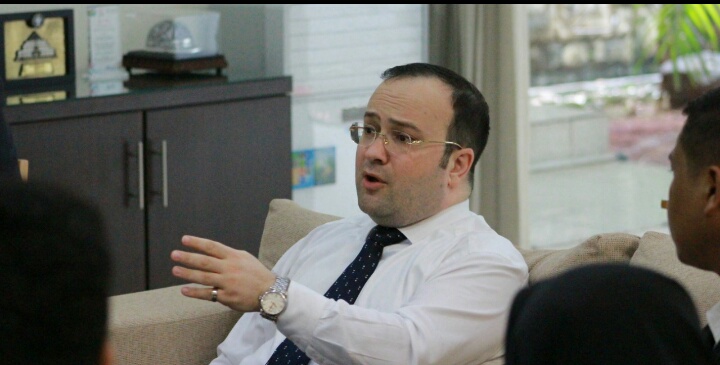

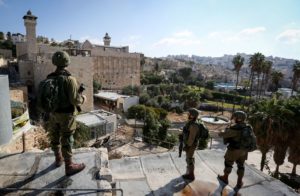
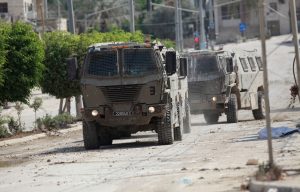

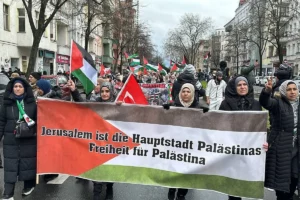

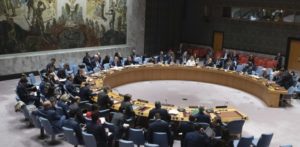

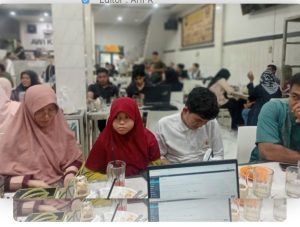
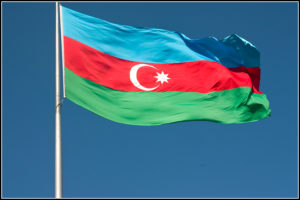

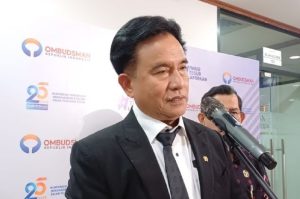
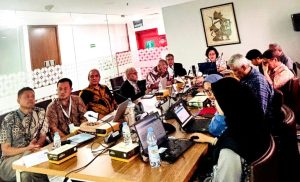
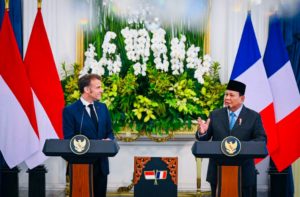








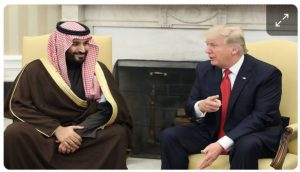


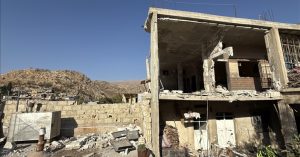



 Mina Indonesia
Mina Indonesia Mina Arabic
Mina Arabic